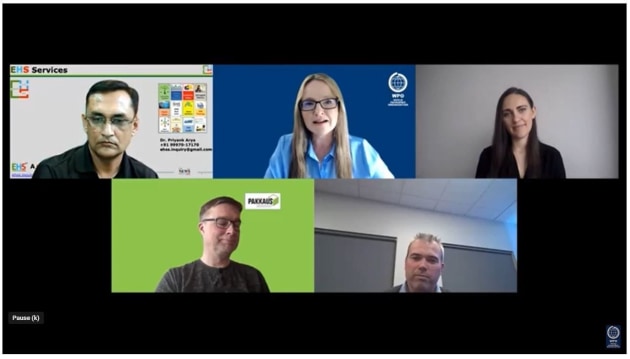Extended Producer Responsibility (EPR) is one of the loudest conversations happening right now in the world of packaging, and a recent webinar hosted by Nerida Kelton, vice president for Sustainability & Save Food for the World Packaging Organisation (WPO) saw several industry experts come together to discuss their experiences and offer some clarification.
The panellists included: Antro Säilä, president of European Packaging Institute’s Consortium; Dr Priyank Arya, vice president of India’s Waste Management and Recycling Society; Vivian Loftin, co-founder of Germany’s Recyda and Joseph Doherty, managing director of the UK’s Re-Gen Waste.

Kelton kicked off the webinar by explaining that in the simplest of terms, EPR is about putting the responsibility to create sustainable packaging into the hands of those who produce it: the packaging companies. However, the way EPR is actually implemented in different regions can vary.
For example, Kelton said, in Europe there is much conversation around the current revisions to the Packaging and Packaging Waste Directives (PPWD), which includes minimum mandatory recycling targets across all packaging, mandatory reuse and refill targets, as well as reporting and labelling obligations. There is also talk in Europe around the possibility of including chemical recycling to be counted towards these targets.
Säilä told us that in Europe, all states have their own ways of implementing EPR, with some advancing rapidly, while some are still on the early stages of the journey. Doherty chimed in and said the UK is in its early days and so he is here to learn from countries with more experience, hoping to get as much information as possible on what works and what doesn’t.
However, Kelton went on to say, Asia’s (including ANZ) approach to EPR is very different. While some countries are embracing it, others are focusing on product stewardship programs, which see the costs split between producers and regulatory bodies or consumers.
Arya said that India is having much success, which he puts down to the country following a “native model”, which has proved more effective than their previous efforts at trying to emulate Europe. This was an important point that was reiterated in the latter part of the discussion.
With so many countries at different stages of implementation, or with very different policies, Kelton wanted to let the packaging industry know the support WPO can offer, stating: “The most important message of today is that the WPO is here to help all of you.” She went on to describe the Global Packaging Design for Recycling Guide that the WPO has produced, in partnership with the University of Applied Sciences, Vienna, Circular Analytics and ECR Community, which has the goal of internationally harmonising design standards for state-of-the-art Materials Recovery Facilities. It is free of charge and easy to use, and as Kelton said, “you can be from any field and understand it”. The WPO is also busy translating the guide into multiple languages across the world.
Additional tools that have been developed by the WPO are the 27x country mapping tools. Based on the understanding that not every country has developed the infrastructure for recycling, the tool can help companies choose the right materials for product packaging when exporting to different countries, as it explains what these countries can and cannot recycle.
As the conversation moved towards how much standardisation should take place globally, the panellists all had their own insights.
Loftin said that with every country having its own approach, it’s not simple for producers to understand the requirements and needs of different places when they are dealing in multiple markets. She posed the question as to whether we should harmonise everything, or just talk about the main concepts, adding that we need to be clear when discussing harmonising, what that actually means.
Säilä seconded this, by saying that while he is a firm believer in standardisation, local conditions should be taken into account. “It’s not a one size fits all,” he said, adding that he believes recycled materials will soon be just as important as primary materials were in the past.
The main take away from this insightful webinar, seems to be that while an overall standardisation of EPR and recycling policy worldwide is necessary, and would make things much easier for packaging producers to be compliant, a certain level of nuance is necessary. Every country not only has its own unique circumstances regarding level of and type of recycling infrastructure, but also, as Arya was keen to point out, its own social and cultural environment.
Indeed, there is no one size fits all solution.





